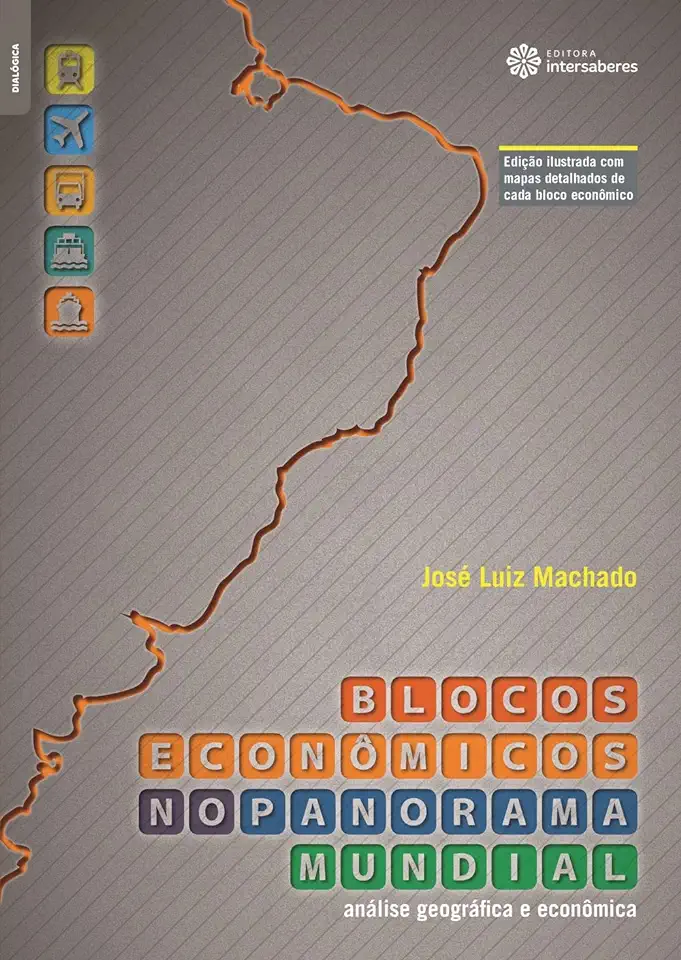
Economic Blocs in the World Scenario - José Luiz Machado
Economic Blocs in the World Scenario: A Comprehensive Analysis
In today's interconnected world, economic blocs play a pivotal role in shaping global trade, investment, and economic cooperation. These alliances of countries, formed for mutual economic benefits, have become key players in the international arena. In his thought-provoking book, "Economic Blocs in the World Scenario," renowned economist José Luiz Machado delves deep into the complexities of these economic alliances, offering a comprehensive analysis of their impact on the global economy.
Understanding Economic Blocs: A Foundation for Global Trade
Economic blocs, also known as trade blocs or regional trade agreements (RTAs), are formal arrangements between countries that aim to reduce or eliminate trade barriers among themselves while establishing common policies towards non-member countries. These blocs facilitate the free movement of goods, services, capital, and labor within their boundaries, fostering economic integration and cooperation.
Key Features of Economic Blocs
Trade Liberalization: Economic blocs promote trade liberalization by reducing or eliminating tariffs, quotas, and other trade restrictions among member countries. This encourages increased trade and investment, leading to economic growth and job creation.
Common External Tariffs: To protect their collective interests, economic blocs often impose common external tariffs on goods imported from non-member countries. This helps safeguard domestic industries and ensures fair competition within the bloc.
Harmonization of Policies: Economic blocs often harmonize their economic policies, including regulations, standards, and laws, to create a conducive environment for trade and investment. This harmonization simplifies cross-border transactions and reduces uncertainty for businesses.
Political Cooperation: Beyond economic matters, economic blocs can also foster political cooperation among member countries. This can include joint diplomatic initiatives, security arrangements, and cultural exchanges, contributing to regional stability and cooperation.
Types of Economic Blocs: A Spectrum of Integration
Economic blocs come in various forms, each representing different levels of economic integration. Machado identifies three main types of economic blocs:
Free Trade Area (FTA): An FTA involves the elimination of trade barriers among member countries, allowing for the free movement of goods and services. However, each country maintains its own independent trade policies towards non-member countries.
Customs Union: A customs union builds upon an FTA by establishing a common external tariff and a common trade policy towards non-member countries. This enhances economic integration and facilitates trade within the bloc.
Common Market: A common market takes economic integration a step further by allowing the free movement of goods, services, capital, and labor among member countries. This creates a single, integrated market with harmonized policies and regulations.
The Global Landscape of Economic Blocs: A Dynamic Ecosystem
Machado provides a comprehensive overview of the major economic blocs around the world, including the European Union (EU), the North American Free Trade Agreement (NAFTA), the Association of Southeast Asian Nations (ASEAN), and the Southern Common Market (MERCOSUR). He analyzes their formation, objectives, achievements, and challenges, offering insights into their impact on regional and global economies.
Economic Blocs and the Global Economy: Assessing the Impact
The book examines the multifaceted impact of economic blocs on the global economy. Machado explores how these alliances influence trade patterns, investment flows, economic growth, and global competitiveness. He also discusses the potential drawbacks of economic blocs, such as trade diversion, increased inequality, and the erosion of national sovereignty.
The Future of Economic Blocs: Challenges and Opportunities
In the concluding chapter, Machado contemplates the future of economic blocs in a rapidly changing global landscape. He identifies emerging trends, such as the rise of mega-regional agreements, the impact of technological advancements, and the growing importance of sustainability. Machado offers thought-provoking insights into the challenges and opportunities that lie ahead for economic blocs in the 21st century.
Conclusion: A Must-Read for Understanding Global Economic Dynamics
"Economic Blocs in the World Scenario" is a comprehensive and insightful exploration of the world of economic blocs. José Luiz Machado's expertise shines through as he unravels the complexities of these alliances, providing a deep understanding of their impact on the global economy. This book is a valuable resource for economists, policymakers, business leaders, and anyone interested in understanding the dynamics of international trade and cooperation.
Enjoyed the summary? Discover all the details and take your reading to the next level — [click here to view the book on Amazon!]